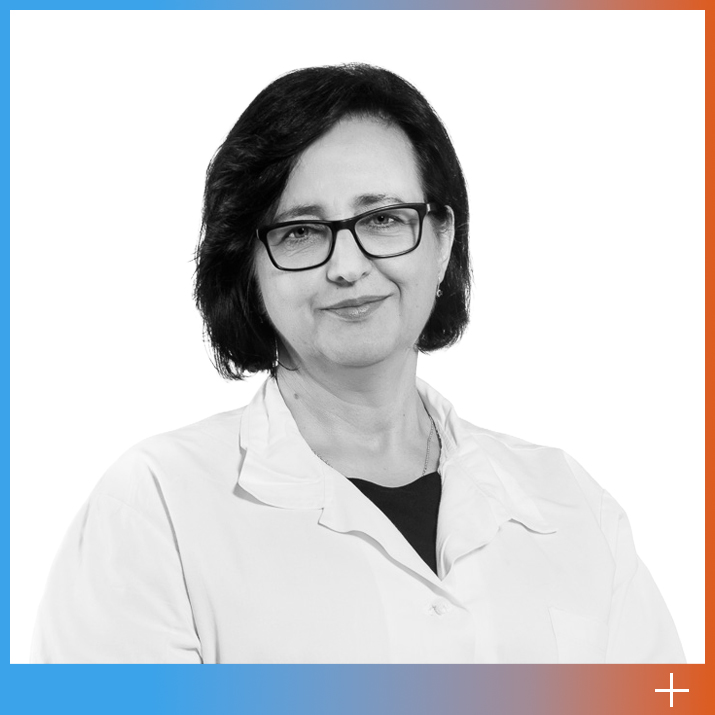Prague Spring Symposium
8th International Symposium of Genetics and Reproductive MedicineFollowing the success of the 2024 edition, The Centre of Medical Genetics and Reproductive Medicine, Gennet, a proud member of the FutureLife Group, is pleased to announce the upcoming Prague Spring Symposium 2026, which will take place on May 14th, 2026, at Alcron Prague—a historic venue located in the very heart of the city.
Founded by Dr. David Stejskal, this international symposium has grown into a recognized platform for sharing the latest discoveries and innovations in reproductive medicine and genetics. The 2026 edition will once again bring together leading clinicians, embryologists, geneticists, and researchers to discuss current challenges, novel technologies, and the future directions shaping our field.
As in previous years, the event will feature a comprehensive program with keynote lectures, scientific presentations, and interactive sessions, offering valuable insights and encouraging professional exchange and collaboration.
We warmly invite all professionals and partners in reproductive medicine and genetics to join us for another inspiring edition of the Prague Spring Symposium 2026—a day dedicated to science, innovation, and our shared commitment to advancing reproductive health.
We look forward to welcoming you again in Prague!

Program
Registration & Welcome Coffee Break
Welcome Speech
David Stejskal, MD
Gennet

Prof. Peter Kopač
University Clinic of Respiratory and Allergic
Diseases Golnik, Slovenia
Is Anaphylaxis a Genetic Disease?
(20 min + 10 min discussion)

Assist Prof Peter Kopač is the Head of the Allergology and Clinical Immunology Department at the University Clinic Golnik, Slovenia and President of the Slovenian Section for Allergology and Clinical Immunology. His clinical and research work focuses primarily on severe asthma, drug hypersensitivity, and management of anaphylaxis. He is a co-author of numerous national and international guidelines in pulmonology and allergology. At Clinic Golnik, he leads the SHARP central registry (the ERS severe asthma registry), serves as a member of the clinic's Research Council, and is a member of the EAACI board for Drug allergy. In recent years, his research has increasingly focused on genetics and the molecular mechanisms underlying the most severe allergic reactions.
Nathalie Ledee, MD, PhD
MatriceLAB Innove, France
Endometrial immune profiling–guided treatment
improves live birth: a randomised controlled trial
(20 min + 10 min discussion)

Dr. Nathalie Lédée received a M.D. from the medical university Paris. After a residency in obstetrics and gynecology and a fellowship in reproductive medicine, she became assistant professor in reproductive medicine in 2004. From 2004 to 2008, she was in charge of the worckpage "bench to bed side" in the European network of excellence EMBIC (EMBryo Implantation Control). From 2010 to 2014, she was senior investigator of the research team dedicated to the "cytokines and the materno-fetal dialogue" (Inserm/university Paris Diderot -Paris, France). On the research side, in 2012, she created the innovation start-up MatriceLab Innove, of which she is currently president. Her field of research focus on the mechanisms of immune tolerance and regulation occurring at the time of the embryo implantation.
Prof. Micheline Misrahi-Abadou
Université Paris-Saclay, France
Genetic Landscape of a large Cohort of Patients
with Diminished Ovarian Reserve:
Correlation with the prognosis of fertility
(20 min + 10 min discussion)

Micheline Misrahi is a physician, professor of biochemistry and molecular biology at Université Paris-Saclay, a member of the Academia Europaea and the European Academy of Sciences, and a 2025 Forbes laureate. She was the first to clone the human progesterone receptor gene and to establish the first structure of the LH/CG receptor from cloned cDNA. She also cloned the human TSH receptor. She identified new genetic causes of infertility and developed the first molecular platform for the study of female infertility in France. A pioneer in the development of genomic medicine for infertility, she was appointed a national expert in genetic infertility and primary ovarian insufficiency in France.
She is responsible for a national genetics and reproductive health education program in France.
Csilla Krausz, MD, PhD
University of Florence, European Academy of Andrology, Italy
The X and Y: Male Reproduction and Beyond?
(20 min + 10 min discussion)

Csilla Krausz is professor in Endocrinology (habilitated as full professor from 2014) and research team leader at the University of Florence, Italy and co-director of the Florence European Academy of Andrology (EAA) Training Center. She obtained her MD cum laude in 1990 and her specialization in Endocrinology in 1995 at the University of Florence, Italy, and her PhD in Human Genetics in 2001 at the Pasteur Institute/University Paris 7, France.
Her major scientific achievements concern the discovery of numerous genetic factors of male infertility through WES (with specific focus on meiotic genes); X and Y chromosome-linked CNVs (deletions) and the identification of their clinical significance. Recent research activities concern oncofertility (the effect of chemotherapy on the sperm genome and epigenome) and the discovery of novel genetic factors involved in testis cancer. She has authored 180 scientific publications in international peer-reviewed journals and her H-index:76 (Google scholar); H-index:64 (Scopus).
She is an Academician of the EAA and was the President of the EAA from 2014-2022. Currently chair of the EAA Clinical andrologist Examination and the Centre Accreditations Committee. She has served the European Society of Endocrinology as the Clinical Lead of the Reproductive Endocrinology focus area from 2017-2021. She was the Clinical Chair of the Scientific Committee of ICA/ASA congress 2025 (Washington, DC, USA). She has been elected as the President of the ISA from April 2025.
Coffee Break
Prof. Alan Handyside
University of Kent, UK
Combined SNP Parental Haplotyping and Intensity Analysis
for Preimplantation Genetic Testing of Aneuploidy
(20 min + 10 min discussion)

Professor Handyside earned his Bachelor of Arts and Master of Arts degrees from the University of Cambridge, where he also completed his Ph.D. in human embryology.
Professor Handyside's contributions have had a profound impact on the field of ART, leading to advancements in embryo selection, improved success rates, and a better understanding of the genetic factors that influence human reproduction. His work has also raised important ethical considerations regarding the use of genetic testing in ART.
Prof. Sir Nicholas Wald, FRS,
FRCP, FMedSci
University College London, UK
Celebrating the Evolution
of Half a Century of Antenatal Screening
(20 min + 10 min discussion)

Professor Sir Nicholas Wald FRS FRCP FMedSci DSc(Med) FFPH FRCOG ad eundem DSc(Med) honoris causa awarded by UCL. In 1983 Nicholas Wald moved from Oxford University to take up the Chair of Environmental and Preventive Medicine at St Bartholomew's Hospital Medical College (Barts). In 1991 he was a co-founder of the Wolfson Institute of Preventive Medicine at Barts. In 2019 he became Professor of Preventive Medicine at University College London (UCL). He is a Visiting Professor at City St George's University of London, Oxford University and Brown University, USA. He was elected a Fellow of the Royal Society in 2004, Knighted in 2008 for services to preventive medicine and elected an international member of the US Academy of Medicine in 2019.
In the 1970s, Wald showed that fetal neural tube defects could be detected by measuring alpha-fetoprotein in the pregnant woman's blood. In 1991 showed that folic acid supplementation prevented most cases of neural tube defects. He, with colleagues, first described the Triple test (1988), Combined test (1998), Quad test (2003), Integrated test (1999) and Reflex DNA test (2015). Prof Wald is Managing Director of Logical Medical Systems which developed and distributes the interpretive software Alpha for use in antenatal screening for Down's syndrome, trisomy 18, trisomy 13, open neural tube defects and pre-eclampsia. Alpha has been used in antenatal screening in Czechia and Slovakia with more than 2 million pregnancies tested since 1993.
Prof. Joris Vermeesch
UZ Leuven, Belgium
Next-generation Liquid Biopsy Technologies
in Reproductive Medicine
(20 min + 10 min discussion)

Joris Vermeesch is chair of the Department of Human Genetics, KU Leuven. He is heading the cytogenetics and genome research laboratory at the department of human genetics, Leuven, founder and director of the genomics core facility and is staff member of the Center for Human Genetics, UZ Leuven. He supervised 26 PhD students and 10 postdoctoral fellows, 4 of which became independent professors. In addition, over 15 international trainees have visited the laboratory has over the last five years, of which several senior scientists. Teaching several genetics and genomic courses at KU Leuven & faculty member at European and international courses in genetics of medicine; Faculty member of ECA training courses in cytogenetics & Faculty member of European Advanced Postgraduate Course in Classical and Molecular Cytogenetics. In addition, coordinator of the interuniversity course on human genetics of Belgian Society for Human Genetics (BeSHG).
He is President of the Preimplantation Genetic Diagnosis International Society (PGDIS), Chairman of the Scientific board member of the European Cytogenetics Association (ECA), past Board member of International Society of prenatal diagnosis (ISPD) and past President of BeSHG.
WOS H-index 69; Google H-index 91, 5 year H-index 54, citations 33000.
Lunch
Karin Černá, MD
Gennet, Prague
Comprehensive Clinical Immunology Services
at Gennet with Special Expertise
in Reproductive Immunology
(15 min)

Dr. Karin Černá is a physician at the Department of Allergology and Clinical Immunology at the Gennet clinic, where she has been working since 2015. She has professional qualification and certification in internal medicine, allergology, and clinical immunology. She worked for twenty-four years as a clinical immunologist at the General University Hospital in Prague, including the last five years as the head of the Clinical Immunology and Allergology Laboratory at the Institute of Medical Biochemistry and Laboratory Diagnostics. Since 2017, she has also been working as a clinical immunologist at the Iscare Clinical Center and at the Gennet clinic. She is the author or co-author of 105 publications, 49 of which are in journals with impact factors, has contributed to 17 authored publications and monographs, and has participated in several grant projects. Her current H-index is 16. She is a member of the Czech Society of Allergology and Clinical Immunology ČLS JEP, the European Society for Reproductive Immunology (ESRI), and the American Society for Reproductive Immunology (ASRI).
Jakub Horák, PhD
Gennet, Prague
Integrating SNP Analysis and Advanced Embryo
Classification in Contemporary Preimplantation Genetic Testing
(15 min)

Jakub Horák PhD graduated from Masaryk University Brno and completed his postgraduate doctoral studies at University of Tübingen. After eleven years of study and basic research in the field of molecular biology and genetics he started working at reproductive genetics diagnostic laboratory Repromeda Brno. He actively participated in the wider expansion of new methods and technologies of preimplantation genetic testing. Since 2015 he have continued as the director of the Repromeda laboratory. In 2020 Jakub was appointed Director for Preimplantation Genetic Testing at Gennet.
Štefan Lednický, MD
Gennet, Prague
Case Reports in Diminished Ovarian Reserve
and Premature Ovarian Insuficiency
(15 min)

Dr. Štefan Lednický graduated in General Medicine from the First Faculty of Medicine, Charles University. During his studies, he gained experience through international internships in Brazil and the United States. He further expanded his professional expertise during an ENTOG Exchange traineeship in Poland and while working at the private gynecology clinic GYNMEDICO.
He spent six years working as a physician at the Department of Gynecology and Obstetrics of the First Faculty of Medicine, Charles University, at the General University Hospital in Prague. Since 2023, he has been a member of the medical genetics department team at Gennet.
He has successfully completed board certification examinations in both Gynecology and Obstetrics and Medical Genetics.
Patrik Šimják, MD, PhD
Gennet, Prague
Fetal Imaging in the Genomic Era:
Bridging Ultrasound and Genetic Etiology
(15 min)

Dr. Patrik Šimják graduated from the First Faculty of Medicine, Charles University in Prague. He is board-certified in Obstetrics and Gynecology, Perinatology, and Fetal Medicine. He is involved in several research projects and regularly publishes scientific papers in prestigious international journals, as well as lecturing at national and international congresses.
He has gained clinical experience, among others, at the Department of Obstetrics and Gynecology of the General University Hospital in Prague, as well as during fellowships at clinics in Italy and Poland. He also takes part in the education of future physicians and midwives at the First Faculty of Medicine, Charles University.
Jan Král, PhD
Gennet, Prague
Prenatal Exome Sequencing as a Diagnostic Tool
(15 min)

Jan Král, PhD., graduated with a master's degree in biochemistry from the Faculty of Science at Charles University. He completed his doctoral studies at the Oncogenetics Laboratory at the First Faculty of Medicine at Charles University, where he researched hereditary predispositions to pancreatic and endometrial cancer. Since 2023, he has been employed at GNTlabs by Gennet, where he focuses on the diagnostic use of exome sequencing. He primarily concentrates on the evaluation of prenatal exome cases.
Miloš Černý, MD
Gennet, Prague
The Role of Genetics and Immunology in Assisted Reproduction
(15 min)

Dr. Miloš Černý is the Head Physician of the IVF program at Gennet, where he has been working since 2018. He graduated from the Second Faculty of Medicine, Charles University in Prague. He gained his clinical experience at the Department of Obstetrics and Gynecology at Kladno Regional Hospital and Motol University Hospital.
In 2017, he obtained board certification in Obstetrics and Gynecology, and in 2023 he achieved board certification in Reproductive Medicine. Together with his team, he is actively involved in extensive lecturing and publishing activities in the field of assisted reproduction.
Daniel Black, MD, MBA
ClearNote Health
Innovating Early Cancer Detection via Liquid Biopsy
(15 min)

Dr. Daniel Black, MBA, is an international commercial leader with over 15 years of experience in biopharma and medtech, specializing in global commercialization, product strategy, and early cancer detection solutions. He has held senior leadership roles at ClearNote Health, Centogene, and Roche Diagnostics.





